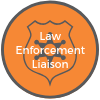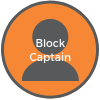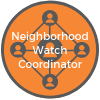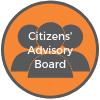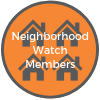Organizing Your Neighborhood Watch
There is no single right way to organize a NW group. Depending on local law enforcement and their requirements, there might not be a lot of choice. No matter how your NW is set-up, the organizational structure must take into account the needs of the community and law enforcement. A traditional NW group will include a law enforcement officer or liaison to the group, an area coordinator who lives in the community, block captains spread throughout the community, and watch members. One of the final steps in forming and organizing a Neighborhood Watch is the designation of leadership. These individuals will be responsible for the planning and coordinating activities. Watch leaders may be formal leaders elected by their peers or informal leaders who are simply the first to volunteer! As a Watch becomes more advanced, the members may form an advisory or executive board to make decisions for a larger area. It doesn’t matter how your Watch group is set-up, as long as your community members are excited and effectively addressing the identified problems.
The Law Enforcement Liaison
Traditionally, designated sworn officers or their non-sworn public service counterparts are assigned as liaisons or coordinators for Neighborhood Watch. Often these individuals are selected because of their previous crime prevention experience or training. Some Watch officers and coordinators are chosen because of their desire to reach out and work with the community, while others are selected because of their communication skills or abilities to plan, organize and mobilize others.
[Top]
The Block Captain
Block captains are recommended for every 10-15 houses, and they should be directly involved with their immediate neighbors.
[Top]
The Neighborhood Watch Coordinator
The Coordinator’s job is crucial to the success of your program. This may be just the right job for a retiree or other individual who has extra time at home.
[Top]
Citizens’ Advisory Board
Some law enforcement agencies and cities running large neighborhood watch groups have arranged for a group of citizens to oversee the groups in a certain area. This is a good idea if the neighborhood watch plans on fundraising or if the number of groups is too overwhelming for the law enforcement liaison.
[Top]
Neighborhood Watch Members
In some neighborhoods, the need for a proactive neighborhood watch program will be evident because of the well documented crimes or the acknowledged disorder that occurs in the community. In these neighborhoods, residents are usually ready and willing to mobilize and participate in the NW program.
[Top]

